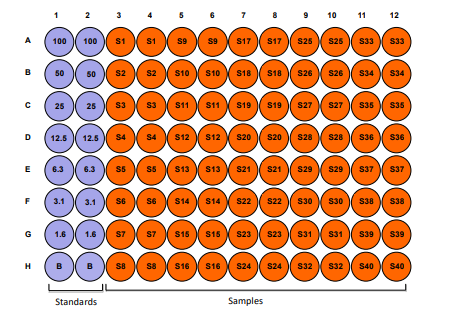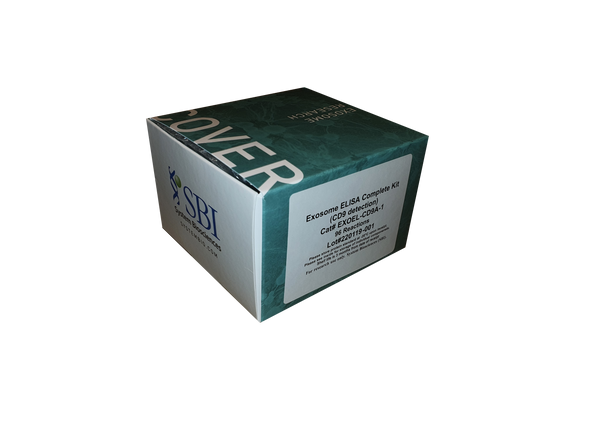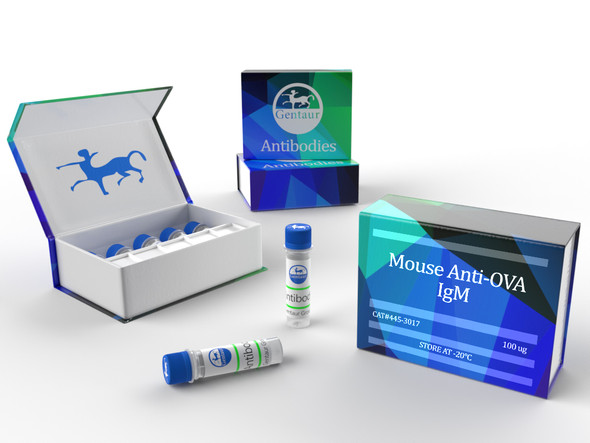Description
OVA Detection ELISA - Cat Number: 6032 From Chondrex.
Research Field: Allergy
Clonality: N/A
Cross-Reactivity:
Host Origin: N/A
Applications: N/A
Isotype: N/A
Detection Range: 100 ng/ml-1.6 ng/ml
Sample Type: Liquid Samples
Concentration: N/A
Immunogen:
DESCRIPTION: ELISA Kit to quantify ovalbumin
FORMAT: Pre-coated 96-well ELISA Plate with removeable strips
ASSAY TYPE: Sandwich ELISA
ASSAY TIME: 4 hours
STANDARD RANGE: 100 - 1.6 ng/ml
NUMBER OF SAMPLES: Up to 40 (duplicate) samples/plate
SAMPLE TYPES: Culture media, serum, plasma, and solubilized samples (extracts)
RECOMMENDED SAMPLE DILUTIONS: 1:1 (at least)
CHROMOGEN: TMB (read at 450 nm)
STORAGE: -20°C for 12 months
VALIDATION DATA: Intra-Assay (9.1-10%) /Inter-Assay (1.5-10.8%) /Spiking Test (90-96%)
NOTES
INTRODUCTION
Allergic diseases and symptoms arise from an active immune response to antigens which are usually harmless, such as pollen, pet dander,or food. Food allergies and asthma are two common childhood autoimmune diseases that have recently begun to affect more individuals.
A food allergy is an immune response to foods or food ingredients that most other people can tolerate with no problem. Chicken egg allergy is the second most common food allergy (the first being bovine milk allergy) and is observed in 0.5 to 2.5% of young children. Egg allergy is an immunological reaction induced by egg proteins and is defined as an allergen-specific IgE antibody-mediated allergy, also known as a type I food allergy. Among egg proteins, ovalbumin (OVA) is one of the identified allergenic proteins (1) (2). Asthma is a chronic inflammatory disease that affects 300 million people of all ages worldwide (3). It is caused by exposure to allergens such as dust mites, pet dander, pollen, or mold, and characterized by airflow obstruction and bronchospasm.
House dust mite (HDM) allergens are the most important indoor allergens in humans (3). Approximately 10% of asthma patients sensitized to HDM demonstrate IgE antibodies to the tropomyosin protein (Der p10) from dust mite, Dermatophagoides pteronyssius (2). Der p10 is a 32 kDa, group 10 allergen (tropomyosins). Tropomyosins of a similar structure are found in invertebrates such as crustaceans (shrimp, lobster, crawfish, and crab), arachnids (house dust mites), insects (cockroaches), and mollusks. Tropomyosin is a heat-stable protein and sensitization may lead to severe reactions to the allergenic source. Therefore, the Der p10 antigen may play a role in the cross-induction of allergic reaction to many allergens. (4)
To analyze the pathogenesis of these allergens, OVA and HDM (Der p 10), in allergic reactions in patients or animal disease models,Chondrex, Inc. provides allergen detection ELISA kits. For more information, please visit www.chondrex.com or contactsupport@chondrex.com.
KIT COMPONENTS
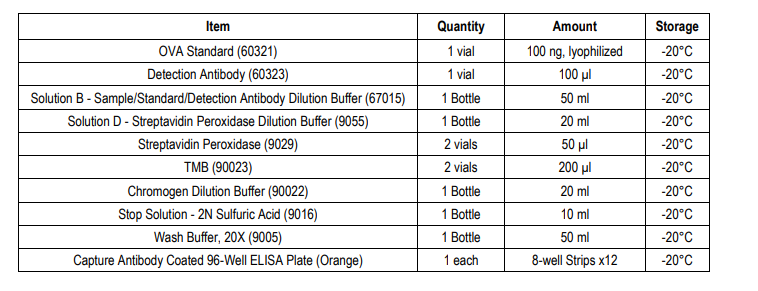
ASSAY OUTLINE
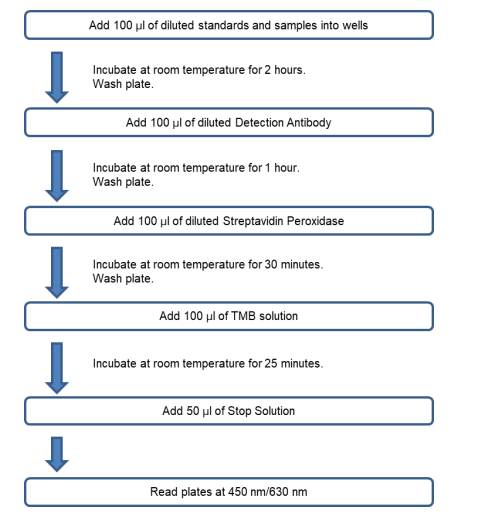
PLATE MAPPING
